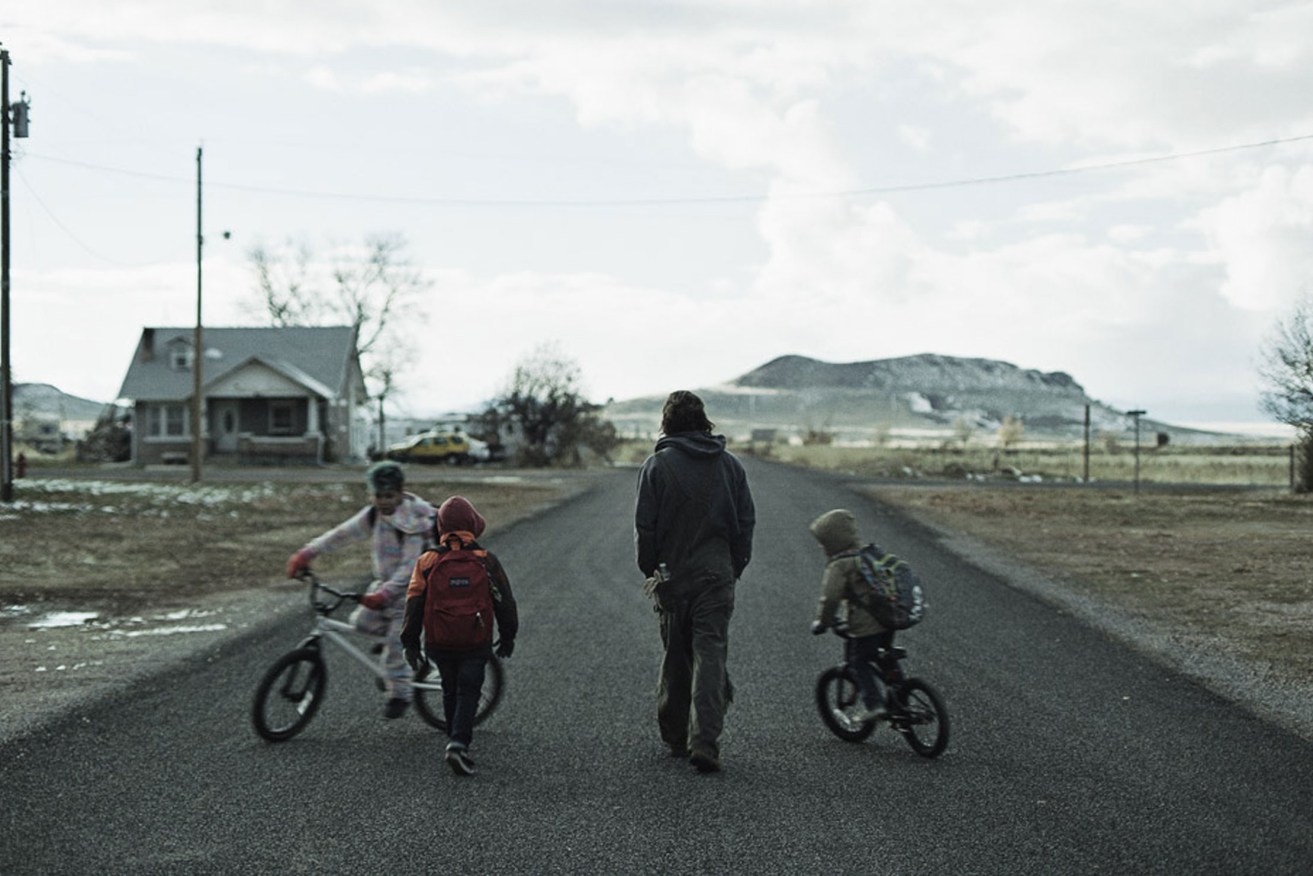Film review: The Killing of Two Lovers
Steeped in a small-town reality with swirling latent violence, this indie gem tells a riveting story about a marriage in trouble which one partner wants to save more than the other.


It gives nothing away to say this film opens in silence with a man pointing a gun directly at a woman who is peacefully asleep alongside her lover.
We are in the dark about what is going on but the camera silently follows the man, David, who is young with a heavy beard and long muso hair, as he climbs quietly out the window and jogs back home where he lives with his ailing dad.
This is small-town Utah, with wide, empty streets, and tumbledown houses nestled among snow-capped mountains. David, in an extraordinary performance by the relatively unknown Clayne Crawford, is looking after his father, who is unwell but still alert and jokey, and you see quickly that they are not well off.
We soon learn that David and Nikki (Sepideh Moafi), whose bed he was standing over, were childhood sweethearts who married soon after school because Jess, their oldest, was coming along. After that they had three boys and at some point amid all the domesticity came the dawning understanding of what they may have missed out on, like better careers or maybe a life somewhere else.
They are careful with each other and there is little hostility; they made a civilised decision to spend some time apart and see other people and to find out where that takes them. We love each other, we will work this out, Nikki says. But in reality Nikki, who wants to be a lawyer, is seeing someone she met through work, while David, whose dreams of being a professional musician came to nothing, can see he is losing her and his heart is breaking.
This is not a film about toxic masculinity or divorce or American gun culture or the death of dreams, although they are part of it. It is a riveting story about a marriage in trouble which one partner wants to save more than the other. David’s problem, if you can call it that, is that he respects Nikki’s decision and is trying to see it through but he is in a bind of his own making. You have to fight for us, Jess tells him. The bigger question is what can happen to ordinary people when jealousy, anger, betrayal, disappointment and anger can no longer be contained, particularly in America, where every household has a gun.
The scenes between David and the boys, played by the actual children of writer-director Robert Machoian, are tender and real; this is a father who listens to his children and wants to be with them. It’s a refreshing change from trite scenes of happy families where someone is flipping pancakes or going to a baseball game. The whole film is like that, steeped in a small-town reality and stripped of fakery – in other words, an indie gem.
When David and Nikki watch unobserved as their kids trash the flowers Nikki’s lover has just dropped over, there is a warmth between them that may be just familiarity or shared parenthood – or maybe, in a family of six, this is love.
The title is a metaphor that works on a couple of levels but it acknowledges the latent violence swirling around. Its emotional punch made it the talk of Sundance, and Crawford’s performance – which includes an unaccompanied country song in which he excruciatingly bares his soul – is a revelation.




